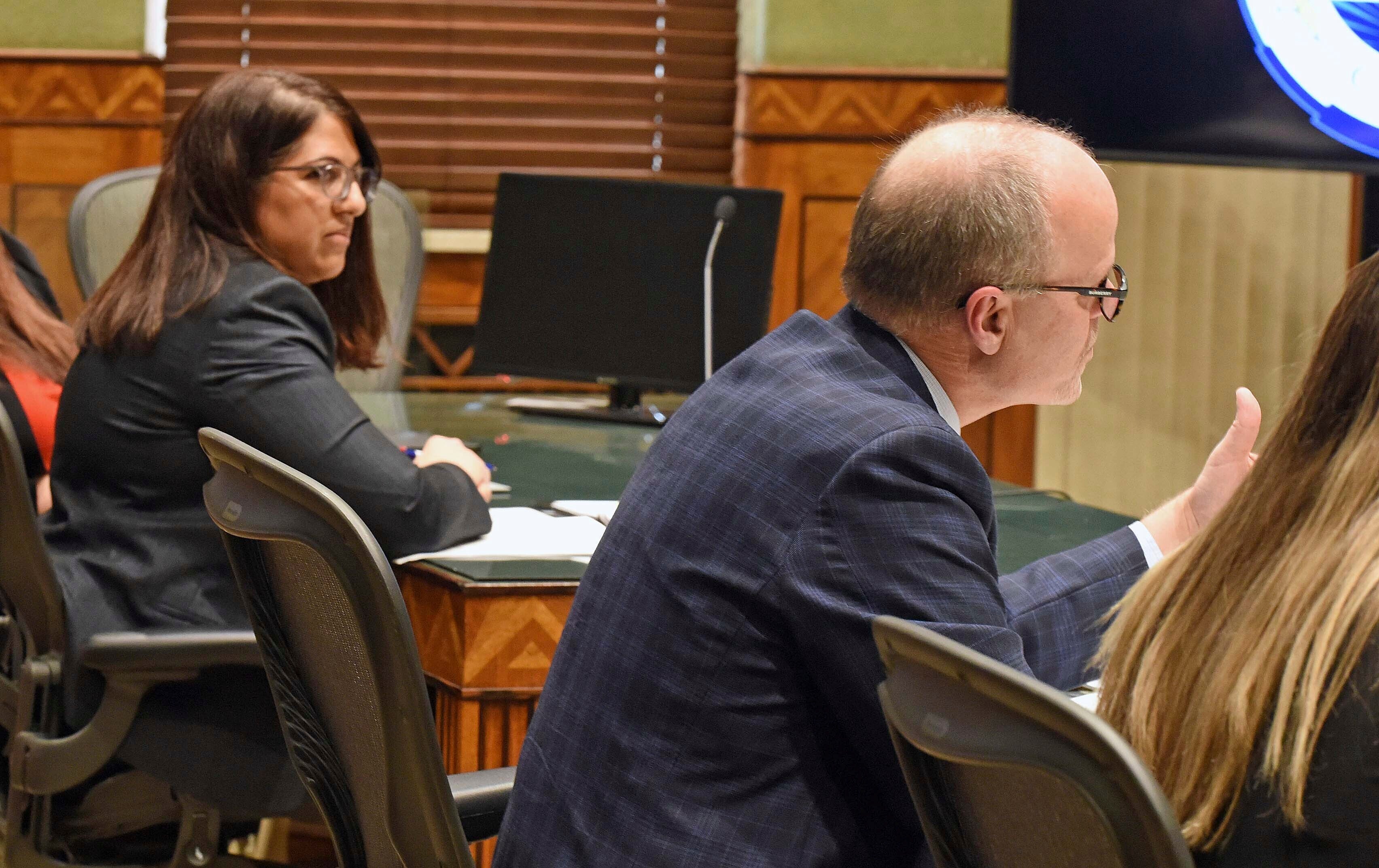North Dakota judge to decide whether to temporarily block part of abortion law that limits doctors
Physicians and the former sole abortion provider in North Dakota have asked a state district court judge to temporarily block the enforcement of part of a revised law that bans most abortions so doctors can perform the procedure to save patients' lives or health

Your support helps us to tell the story
From reproductive rights to climate change to Big Tech, The Independent is on the ground when the story is developing. Whether it's investigating the financials of Elon Musk's pro-Trump PAC or producing our latest documentary, 'The A Word', which shines a light on the American women fighting for reproductive rights, we know how important it is to parse out the facts from the messaging.
At such a critical moment in US history, we need reporters on the ground. Your donation allows us to keep sending journalists to speak to both sides of the story.
The Independent is trusted by Americans across the entire political spectrum. And unlike many other quality news outlets, we choose not to lock Americans out of our reporting and analysis with paywalls. We believe quality journalism should be available to everyone, paid for by those who can afford it.
Your support makes all the difference.A North Dakota judge said Wednesday he will decide soon whether to temporarily block a part of the state's revised abortion laws so doctors can perform the procedure to save a patient's life or health.
The request for a preliminary injunction asks state District Court Judge Bruce Romanick to bar the state from enforcing the law against physicians who use their “good-faith medical judgment” to perform an abortion because of pregnancy complications that could pose "a risk of infection, hemorrhage, high blood pressure, or which otherwise makes continuing a pregnancy unsafe.”
North Dakota outlaws all abortions, except in cases where women could face death or a “serious health risk.” People who perform abortions could be charged with a felony under the law, but patients would not.
Physicians, to mitigate risk of prosecution, "feel like they must delay offering abortions to their patients until the patients' health has declined to the point where other physicians could not plausibly disagree that it was necessary to provide an abortion,” Center for Reproductive Rights attorney Meetra Mehdizadeh said.
“Patients and physicians have experienced significant harm,” she said. “For patients, the denial of their constitutional rights and forced additional health risks; and for physicians, the harm of having the threat of criminal prosecution hanging over their head every time they treat a patient with a medical complication.”
The state's revised abortion laws also provide an exception for pregnancies caused by rape and incest, but only in the first six weeks, before many women know they are pregnant. It also allows for treatment of ectopic and molar pregnancies, which are nonviable situations.
Special Assistant Attorney General Dan Gaustad cited the plaintiffs' “seven-month delay” in seeking a preliminary injunction, and he disputed the “good-faith medical judgment" language. He told the judge the plaintiffs are asking him “to modify and rewrite the statute under the guise of a preliminary injunction." The law uses ”reasonable medical judgment."
The Red River Women’s Clinic sued the state last year after the U.S. Supreme Court’s Dobbs decision, which overturned the court's landmark 1973 Roe v. Wade ruling establishing a nationwide right to abortion. The lawsuit targeted the state’s since-repealed trigger ban — a ban designed to go into effect immediately if the court overturned Roe v. Wade — as unconstitutional. The clinic moved from Fargo to neighboring Moorhead, Minnesota, where abortion is legal.
The judge granted a preliminary injunction blocking the ban from taking effect last year, which the state Supreme Court upheld in March.
Chief Justice Jon Jensen wrote in the court’s March decision that “it is clear the citizens of North Dakota have a right to enjoy and defend life and a right to pursue and obtain safety, which necessarily includes a pregnant woman has a fundamental right to obtain an abortion to preserve her life or her health.”
Soon afterward, North Dakota's Republican-controlled Legislature passed a bill revising the state's abortion laws, which Gov. Doug Burgum signed into effect in April.
In June, the clinic filed an amended complaint, joined by several doctors in obstetrics, gynecology and maternal-fetal medicine. A jury trial is scheduled for August 2024.